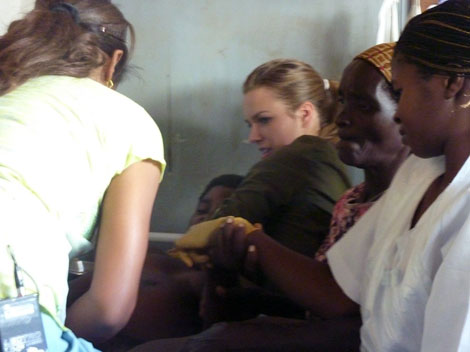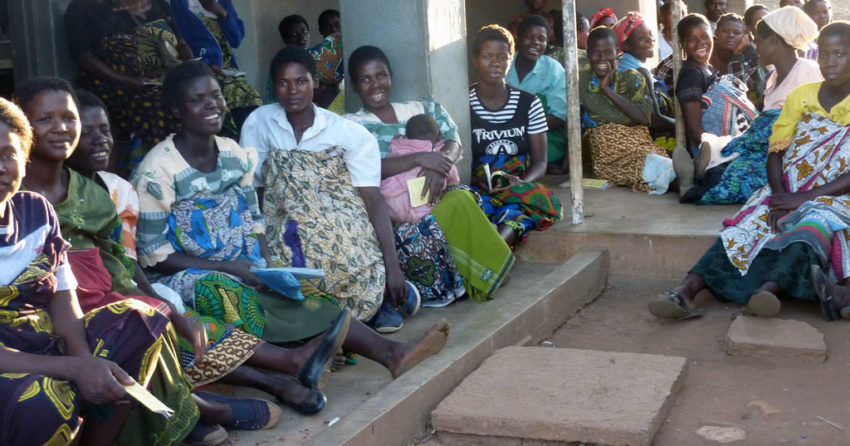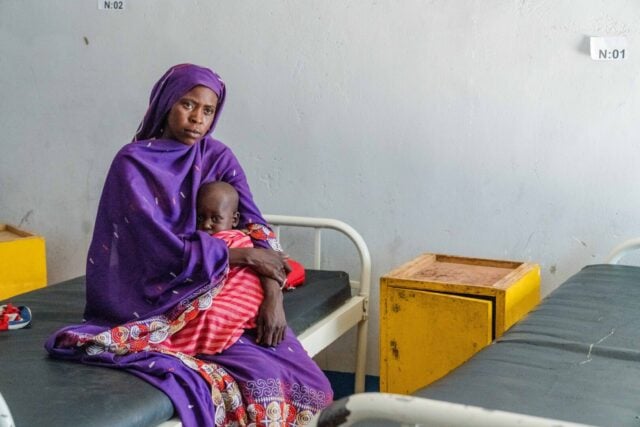Dr. Lisa Masterson, a host of the Emmy® Award-winning TV series “The Doctors,” traveled to Malawi earlier this year to work with World Vision at a local clinic. Here, she shares about her memorable experience assisting with the delivery of a baby, whose health was made possible through effective prenatal care and education.
* * *
When I arrived, she was eight centimeters dilated. For this laboring mother, there was no cozy birthing bed, no epidural, no family member present to hold her hand. Sera, the clinic midwife, greeted me with a demure smile that I would later realize belied tremendous strength and skill.
In June, I had the privilege of serving in the Chiwamba Health Center in Malawi. The trip was the culmination of a year-long partnership with the UN Foundation and the television show I host, “The Doctors.”
For nearly a decade, I’ve made it my mission to improve maternal and child health in developing nations. I founded a charity, Maternal Fetal Care International, established clinics in Kenya and Eritrea, and worked in India. I tell you this because I want you to know that my experience with World Vision in Malawi was not new or unfamiliar, and yet it was profound.


On a simple table draped with plastic, this mother labored. It was clear she was in tremendous pain. I encouraged her to try different positions, like squatting, to help ease the pain and expedite her labor.
Finally, it was time to push. The baby began to crown and then became stuck in the birth canal. I leapt up on the table, my thoughts racing, “There are no forceps, no vacuum. I can’t do a c-section this late. I have to get this baby out now!”
With all the strength we had, this mother pushed, and I pulled. I wondered if I would have to break this baby’s collarbone to help ease him or her out.
At last, we heard his cry, sweet and strong — a baby boy weighing just over 8 pounds. To put that birthweight in perspective, UNICEF estimates that 18 million infants are born every year in developing nations weighing less than 5.5 pounds. This baby’s healthy birthweight is the direct result of the prenatal education program and support provided by World Vision.
The mother looked at me with eyes that said “thank you” in any language. She whispered to Sera, who translated, “She’d like you to name her son.”
I named him Daniel, after my own son.
Two babies, 40 patients, and 15 prenatal checkups later, we had run out of light and energy. It was time for me to go. The midwife stayed, working through the night with candles, as she does for 14 days straight.
I asked her when she sleeps. She answered, “It’s a challenge.”
Learn more about World Vision’s work to ensure that children can grow up healthy in their communities, with access to basic health services, adequate nutrition, and disease prevention.




Comments